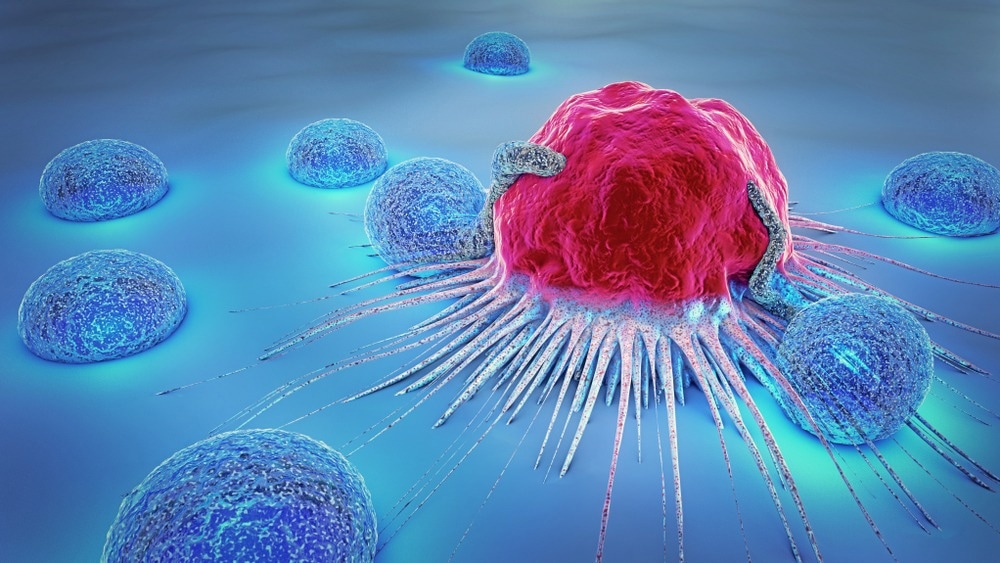Typically, tumor cells change their energy metabolism and take in more glucose to enable their rapid division and spread. As a result, the body’s immune response to cancer is suppressed by limiting the immune cells’ access to glucose.

Image Credit: Christoph Burgstedt/Shutterstock.com
Massachusetts General Hospital (MGH)-led researchers recently discovered a potential target for therapies that could simultaneously drain tumors of energy and enhance the immune response against them by looking for proteins that both govern the metabolism of cancer cells and affect immune cells in tumors.
Keith T. Flaherty, MD, Director of Clinical Research at the MGH Cancer Center and Professor of Medicine at Harvard Medical School, and his team created a new computational tool called BipotentR for the study, which is published in Cancer Discovery. BipotentR can find targets that inhibit immune activation and also stimulate a second user-defined pathway (in this case, metabolism).
The approach discovered 38 cancer cell-specific immune-metabolic regulators using gene expression data from patients with cancer who received immunotherapy, and also from cell lines and animal models.
Artificial intelligence methods revealed that the degree of activity of these regulators in tumors predicted the course of patients’ responses to immunotherapy.
ESRRA (Estrogen Related Receptor Alpha), the most important regulator discovered, was active in a variety of immunotherapy-resistant tumors. Through the suppression of energy metabolism and the activation of two immune systems involving several types of immune cells, ESRAA inhibition kills tumors.
When studied in mice, ESRRA inhibition had only positive impacts on cancer cells’ energy metabolism.
The researchers also showed that BipotentR can be applied to various cancer cell survival strategies, such as the ability of cancer cells to encourage blood vessel development to boost their blood supply.
BipotentR (http://bipotentr.dfci.harvard.edu), offers a resource for identifying single drugs that can work through one cancer-related route while also triggering an immune response.
These findings provide a simple biomarker to predict response/non-response to immunotherapy, and they support ERRA as a therapeutic target.”
Keith T. Flaherty, MD, Professor, Medicine, Harvard Medical School
Flaherty is also the director of Clinical Research at the MGH Cancer Center.